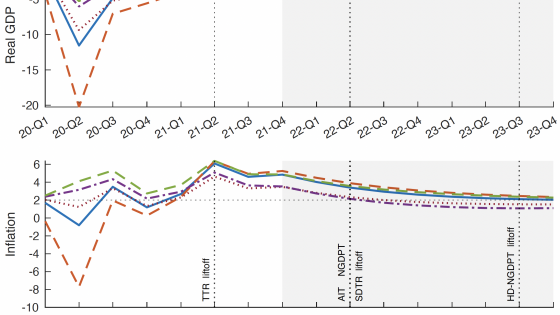
Gauti B. Eggertsson is a macroeconomist and a Professor of Economics at Brown University Economics Department. He received his Ph.D. in Economics from Princeton University in 2004, after having completed his B.S. in Economics from the University of Iceland. He has worked at Research Departments of the International Monetary Fund and the Federal Reserve Bank of New York. Since graduation he has also been Visiting Faculty at Princeton, Yale and Columbia where he taught international finance and macroeconomics at both graduate and undergraduate level.
Eggertsson has published in a variety of professional journals such as the American Economic Review and the Quarterly Journal of Economics. The main focus of his work is the analysis of monetary and fiscal policy over the business cycle, both from a modern and historical perspective. While much of his work is theoretical he has also published series of papers analysing the U.S. Great Depression and the New Deal.
Eggertsson’s most influential work (joint with Michael Woodford) focuses on optimal monetary policy at zero interest rate. This work is sometimes cited by policymakers and the popular press as having influenced the implementation of “forward guidance” by several central banks during the crisis of 2008, aimed at influencing expectations about the future short-term nominal interest rates. His other most cited work includes work on debt deleveraging cycles (joint with Paul Krugman) as well as the first formal modern characterisation of the secular stagnation hypothesis which gives a theoretical foundation for the long duration of the current crisis in the word economy (in a series of papers joint with various co-authors, i.e. Lawrence Summers, Neil Mehrotra and Sanjay Singh).

VoxEU Column
Inflation and the Fed’s new framework in the time of Covid-19
-

- COVID-19 
- Monetary Policy

VoxEU Column
US ‘excess savings’ are not excessive
-

- COVID-19 
- Macroeconomic policy

VoxEU Column
The Fed’s new policy framework: A major improvement but more can be done
-

- Monetary Policy

VoxEU Column
Negative interest rate policy and the bank lending channel
-

- Monetary Policy

VoxEU Column
Monetary policy with negative nominal interest rates
-

- Monetary Policy